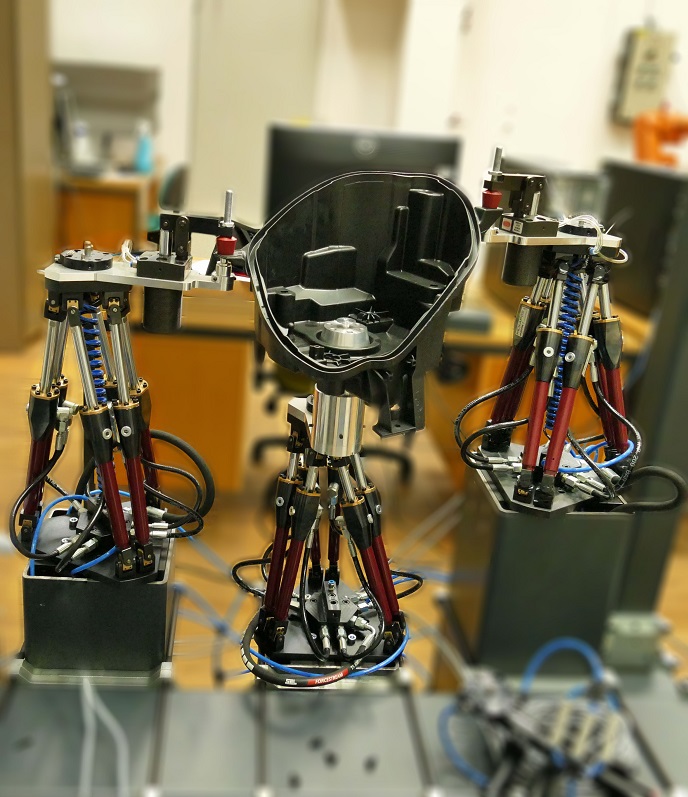Catching up with ReconCell: Major progress in bringing cutting-edge next-gen (and SME-friendly!) robotic solutions to the market
Whilst ReconCell (A Reconfigurable robot workCell for fast set-up of automated assembly processes in SMEs) officially ended in February 2019, Ude and his colleagues have been working hard to strengthen the spin-out company, FlexHex, that had been created to advance their innovative workcell. “FlexHex has been very active in the last year. We’ve been approached by a large German automotive company, a Turkish and a Polish automotive supplier to deliver demonstration samples so they can examine the feasibility of our developed technology in new application areas,” outlines Ude. “On top of that, we’ve also been in contact with a Spanish automotive supplier, but unfortunately due to COVID-19, this contract has been suspended for now.”
New additions and improvements to the hexapod
So, whilst FlexHex has received a lot of positive commercial interest, in parallel the team have also been striving to improve their signature hexapod technology, which is essentially reconfigurable fixtures with pneumatic brakes that are used to increase flexibility for assembly processes in robotic workcells. “At the Jozef Stefan Institute (JSI), where ReconCell was coordinated, we have developed a new algorithm and software to automate the placement and configuration of the hexapod, which has substantially reduced the programming efforts for the utilisation of the hexapods,” Ude says. “Then, my colleagues at FlexHex devised a new, smaller version of the hexapod and added sensors to the legs to control the pose of the hexapod.” FlexHex has also started to develop simpler and more affordable breaks, which are needed to fix the legs of the hexapod. Finally, FlexHex acquired third-party funding from the very large Horizon 2020 DIH2 project to upgrade the hexapods for welding applications.
New industrial partners, new horizons
The JSI, Slovenia’s leading scientific institute, is also a part of another major Horizon 2020 project, the TRINITY robotics digital innovation hub. “Through this project, the ReconCell results are used as modules for demonstration experiments and the dissemination of advanced robot technologies and we hope to find new industrial partners through our collaboration in this project,” explains Ude. Looking back on the ReconCell project, Ude states that even though some of the software technologies used had already been previously developed, the new ideas generated and the opportunity to test the technology in real industrial applications were all down to ReconCell. “In this respect, we can say with confidence that the EU funding through Horizon 2020 was crucial to our success,” Ude concludes.
Keywords
ReconCell, hexapod, workcell, robotics, SMEs, Horizon 2020, FlexHex, Jozef Stefan Institute



